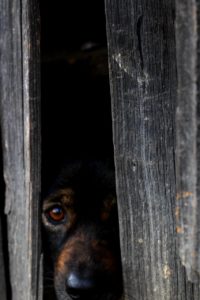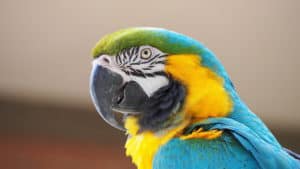
Many times I am asked, “What is the hardest animal you have ever trained?” My answer may surprise you, then maybe not. It’s not a certain species. My answer is ‘the ones with a long, unenriched, unsocialized history’. Those can also be the most dangerous to the uneducated public. Along with these histories come the labels as ‘unpredictable’, ‘neurotic’, ‘odd’, ‘aggressive’, ‘dangerous’, and more. I would also not call the training ‘hard’. It’s labeled that because it takes time, attention, and planning. All of which people call ‘hard’ because they are inconvenient to the lives of the people taking care of them. When shown the small signals to look for in behavior change, this isn’t hard at all. Many times people want too big of behaviors too fast. ‘Too big’ means, the animal doesn’t understand what you are asking or your intentions, because they haven’t yet been communicated through training and learning. These examples are often the cases of numerous returns to the shelters, euthanasia, chained to the garage, or covered in a cage in a basement. This individualized approach is just as relevant when addressing medical concerns that may affect behavior. For instance, untreated infections—such as those that require medications like Fasigyn 500mg can contribute to irritability, lethargy, or sudden shifts in an animal’s responses. Recognizing the link between physical health and behavioral change is essential in creating a complete, compassionate care plan.
The above conversation correlates to a recent example I heard someone describe. It is relative to a teacher saying “Sarah just graduated from the fifth grade and therefore I expect all fifth grade students named Sarah to be exactly alike. This worked for my last Sarah. Why isn’t this working for this one?” Genetics, history, nutrition, environment, medicine, and experience through consequences all play a major factor in the behavior of the animal.

I have a 2 year old lab mix that is afraid of everyone and everything (except for me, that is). He is a wonderfully sweet dog and I feel absolutely horrible for him. You can see that he just wants to play and be pet but his tail is tucked so far under him and he growls (very softly, just to let people know, I think). I would love for him to be able to play and make friends and most of all, NOT be so scared and timid in everyday life. I feel so bad for him. I know he feels safe with me as he shows no fear but with anyone else it is very sad.
Where I work, we have a “doggy day care” where my co-workers bring their dogs and the owners dogs go out to a very large area that they all can play in and socialize. Unfortunately, mine is not able to join in the fun. The other dogs have a good time playing all day and mine ends up staying with me in the office, right under my desk and he runs if someone comes into my office. I just would like me dog to be able to socialize. He was abused prior to me getting him. I think he had a broken rib when I first brought him home at under 3 months old. He is my baby and I just want him to be able to have friends and play.
Hi Kristine. You can definitely teach him socialization through training. I would make sure your training with him is as positive as possible. You can imagine how this could backfire in his progress if you used anything else.
I would train him during your breaks at work. Walk him up and down the hallway and shape interaction with other people and accepting seeing other dogs in the distance for now.
There is so much information I could share with you but it’s hard to type it all out. Feel free to email me or message me if you are interested in an on line consultation where we can come up with a behavior and training plan.
Hello. I was wondering if target training will help my Triton Cockatoo.
He bites me all the time. I love him and I want him to stop longing at me..
Target training will help but I wouldn’t stop with just target training. I would train recall, a station, teach him to forage for food and more.
How to teach foraging? I have a new goffins, she is 16, came from a home where she lives in her owners shoulder, and pretty sure that anything she experienced was from that vantage point. Been here nearly 3 months. Doesn’t play with toys, but figured out she likes paper receipts, colored sisal rope, and sometimes paper. She seems fearful of just about everything. We are working on it. Also, she eats pellets, but nothing else. Working on that, tpo.
Sherry, I know you recently joined my online service called The Parrot Project. I would post your questions in there so we can all add our input. In The Parrot Project, the webinar “Beginning Foraging” is free of charge. I would begin by watching that.